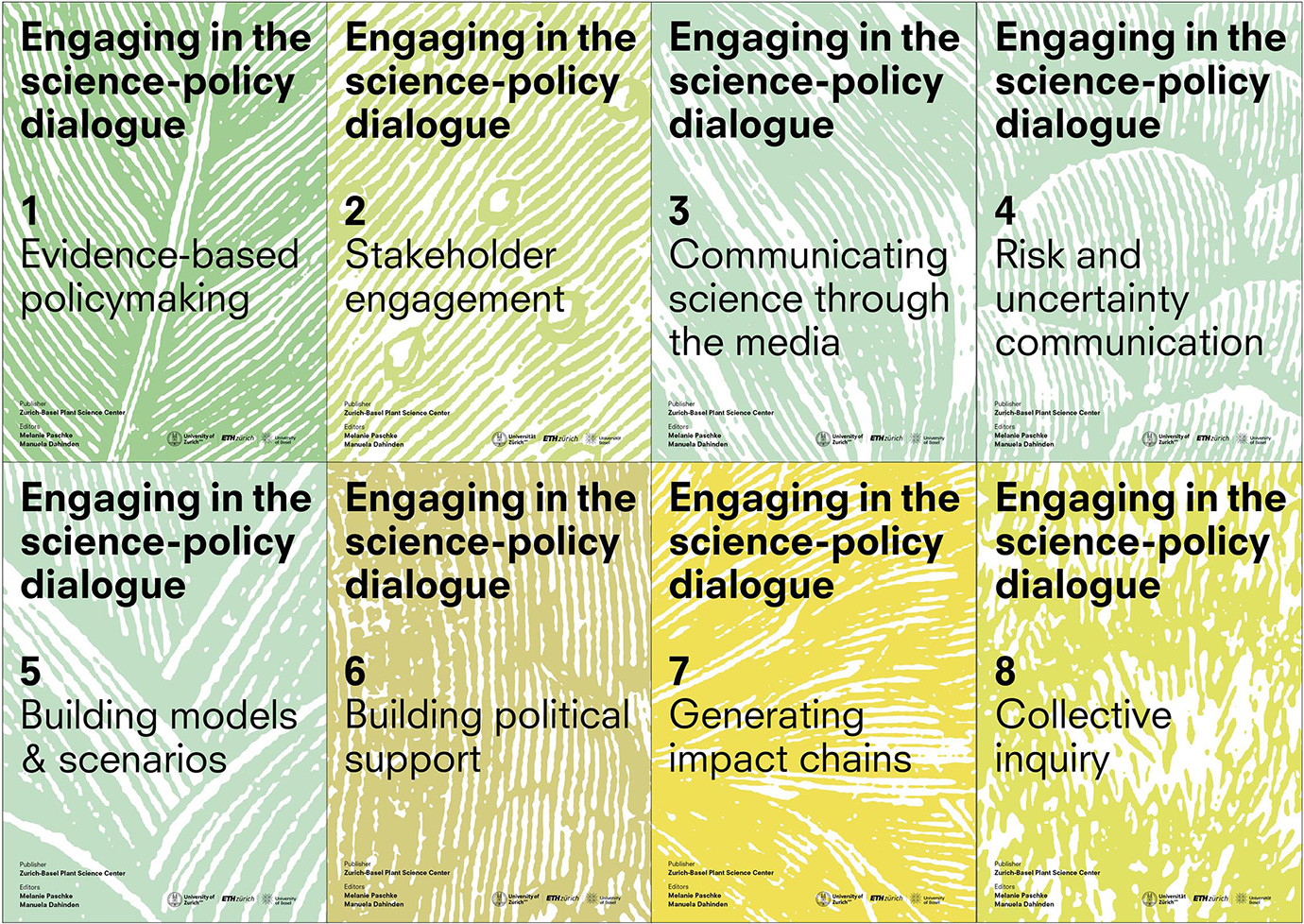Science & Policy Workbooks

The workbooks are aimed at researchers in the life sciences who want to communicate their research findings to policymakers. Educators can use it as a learning resource to promote life sciences education at the intersection of science and policy.
Workbook series: Engaging in the Science-Policy Dialogue
Edited by Melanie Paschke and Manuela Dahinden, Zurich-Basel Plant Science Center, Zurich:
Beuttler, C., Paschke, M. (2020). Risk and uncertainty communication. In: Paschke,
M., Dahinden, M. (eds.): Engaging in the Science-Policy Dialogue, Workbook 4.
Zurich: Zurich-Basel Plant Science Center.
https://www.research-collection.ethz.ch/handle/20.500.11850/340471
Hemmati, M. (2020). Stakeholder engagement. With a contribution by: Maier, B. https://www.research-collection.ethz.ch/handle/20.500.11850/308464
Paschke M., Pfisterer A. (2019). Evidence-based policy making. With contributions by: McNally, K., Herrendörfer, R., Hirschi, C., Last, L. Pauli, D., Studer, B. and J. Schubert. https://www.research-collection.ethz.ch/handle/20.500.11850/308533
Pfisterer, A., Paschke, M. and J. Pasotti (2019). Communication science through the media. https://www.research-collection.ethz.ch/handle/20.500.11850/314920
Bütitikofer, S. (2019). Building political support. With contributions by: Falk, M., Last, L., Neu, U., Paschke, M., Pavageau, C. and C. Rey. https://www.research-collection.ethz.ch/handle/20.500.11850/312492
Paschke, M. and S. Studer (2019). Generating impact chains. With a contribution by: K. McNally. https://www.research-collection.ethz.ch/handle/20.500.11850/315536
Paschke, M. and A. Pfisterer (2019). Collective inquiry. With contributions by: Backhaus, J., Carteret, R., Huppenbauer, M., McNally, K., Reynolds, M., Wallimann- Helmer, I. https://www.research-collection.ethz.ch/handle/20.500.11850/315545
Printed workbooks can be ordered for CHF 20 per workbook at info-plantsciences@ethz.ch
Flyer (PDF, 1 MB) to workbook series
Background
Engaging in the science-policy dialogue means that scientific knowledge is used to generate options for policies. These options need to be embedded in acceptance and decision processes that are democratically legitimated by society.
We emphasize a participatory approach to policymaking, where scientists aim to generate evidence and knowledge in productive partnership with other stakeholders and the public, thus, providing information for debate and contributing their part to recognizing the problem, and formulating, implementing and assessing of policy scenarios.